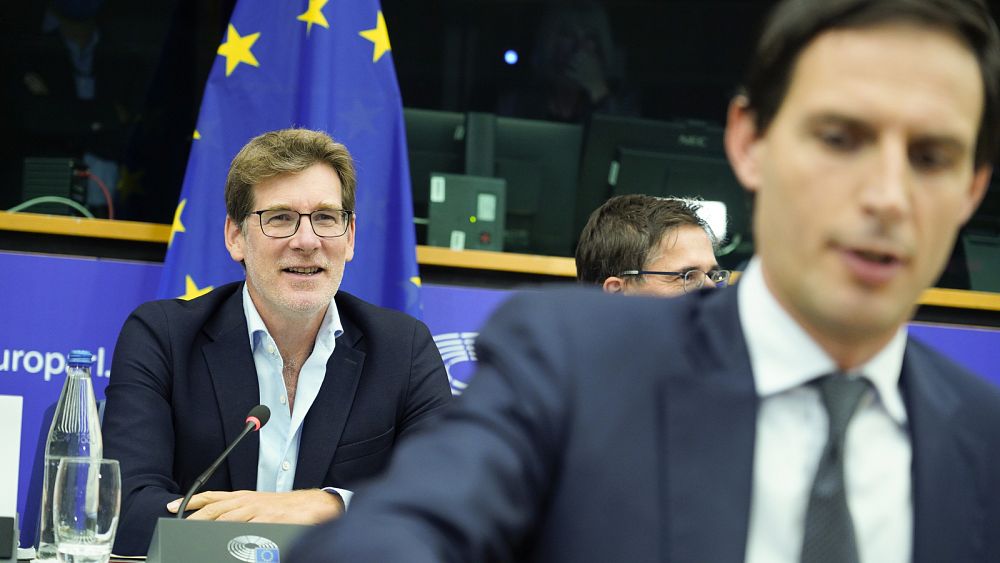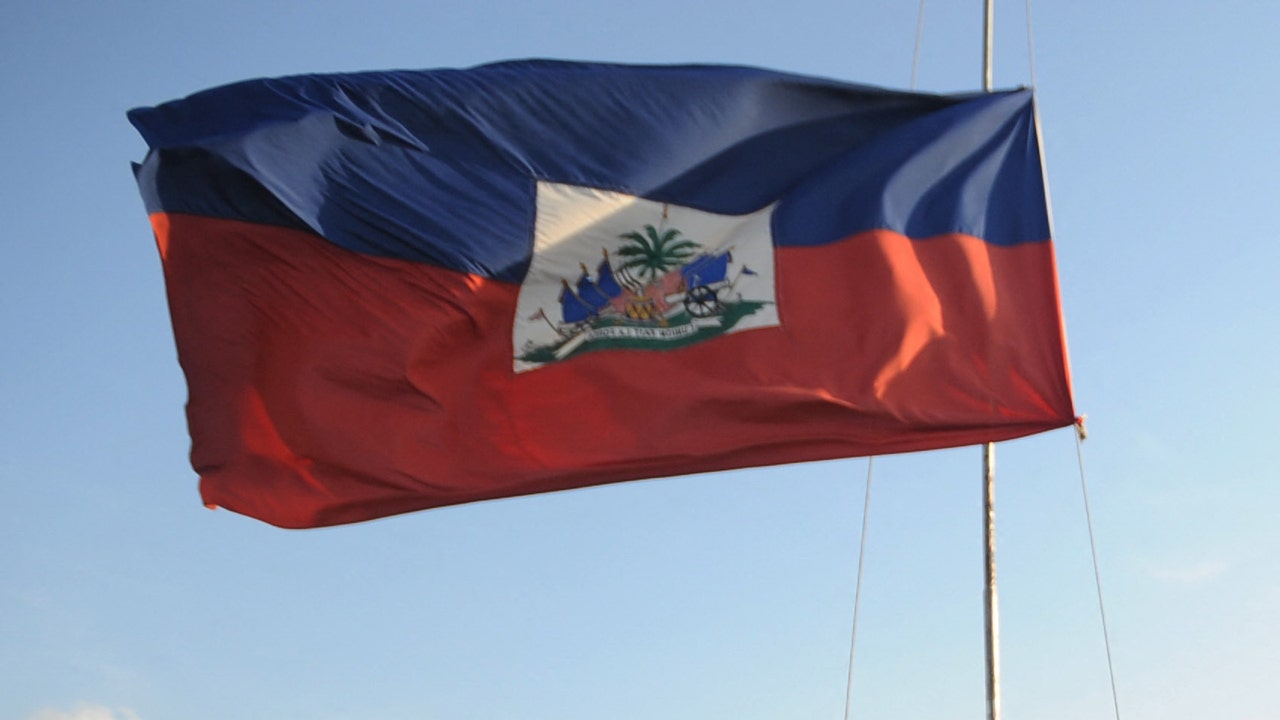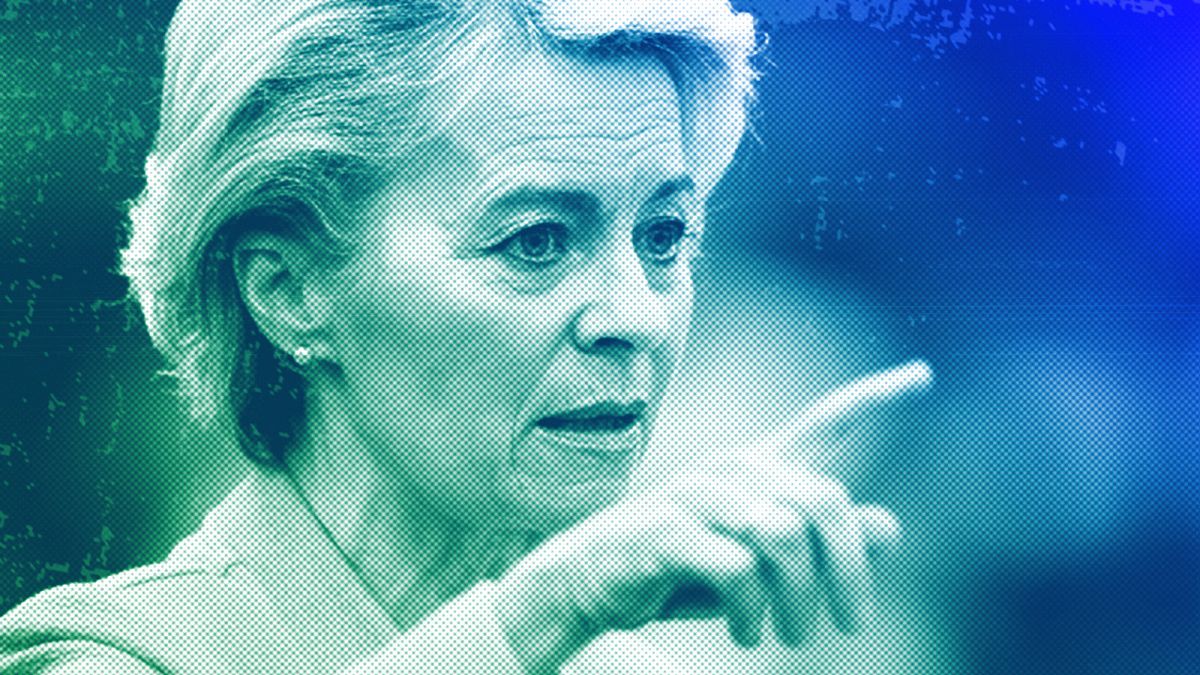World
EU climate chief nominee vows more ambition in parliament hearing

Former Dutch foreign minister Wopke Hoekstra struck back on Monday evening against accusations that he lacks the credentials needed to spearhead the EU’s climate action policies.
During three hours of questioning by Members of the European Parliament (MEPs), the Dutchman pledged to slash EU greenhouse gas emissions by at least 90% by 2040 if appointed.
Hoekstra, who was nominated for the role of EU commissioner for climate action after Frans Timmermans stepped down in August to run in the upcoming Dutch elections, promised to conclude all of the EU’s pending climate legislation before the 2024 European elections. He also vowed to introduce new measures to curb climate change, including a tax on aviation fuel.
“Thanks to your work, Europe is making tangible progress on the green transition. If you place your trust in me, I would like to continue that legacy,” he said in his bid to convince MEPs to back his candidacy.
Two-thirds of the coordinators of the parliament’s environment committee must back Hoekstra’s candidacy before a vote to seal his appointment can be held in a full plenary sitting on Thursday. If approved, he will become responsible for steering the EU towards its landmark goal of carbon neutrality by 2050 and for representing the bloc in international climate negotiations.
Commission Vice-President Maroš Šefčovič is set to inherit Timmermans’ broader responsibility for the EU Green Deal, also pending the European Parliament’s approval.
But Hoekstra’s nomination has sparked fierce backlash from environmentalist groups as well as left-leaning MEPs, who claim he lacks any relevant experience in promoting climate policies.
He previously opposed the Dutch government’s plans to end gas exploitation and reduce harmful nitrogen emissions, and as finance minister granted €3.4 billion in state aid to airline KLM without any environmental conditions. He has also previously worked for oil and gas firm Shell.
But on Monday, he resisted accusations that his track record makes him unsuitable to lead the EU’s climate portfolio.
“Place your trust in me”
Hoekstra assured MEPs he would do everything in his power to ensure the EU meets its ambitious 55% emission reduction target by 2030, and climate neutrality by 2050. He also said he didn’t want to be a caretaker, telling lawmakers he would in the meantime work on a “Green Deal 2.0”.
He pledged to boost green bonds, mandate a phase-out of unabated fossil fuels, advance the EU energy taxation directive and drum up global support for a levy on aviation fuels.
Hoekstra also vowed that the next Multi-Annual Financial Framework (MFF), the EU’s long-term budget, will be “fossil fuel subsidy-free”. When pressed by fellow Dutchman Bas Eickhout of the Greens group, the vice-chair of the parliament’s environment committee, on how he would ensure a qualified majority of member states back such a measure, he said he would do everything in his power to discourage EU countries from including fossil fuel subsidies in their National Energy and Climate Plans (NECPs).
He also pitched an ambitious climate diplomacy programme that would aim to align other major world economies with EU ambition levels.
At COP28, the UN climate change conference that kicks off in Dubai in November, Hoekstra said he would seek a commitment to reach the global emissions peak by 2025, a tripling of installed renewable energy capacity and a doubling of energy efficiency increases by 2030.
The hearing came as concerns mount over a possible ‘greenlash’ (or green backlash) in Europe, with governments watering down key climate initiatives such as new emission limits for cars due to fears of repercussions for European industry and competitiveness.
Hoekstra claimed he was committed to the 2035 ban on the sale of new combustion engine cars on the EU market, but said it was crucial to also tackle “unfair competition” from China and ensure electric cars are affordable for EU citizens.
Addressing the concerns of farmers, foresters and industry
“Above all, we need to work closely with our farmers and foresters,” Hoekstra told EU lawmakers. “They need to be helped to work sustainably, and they are entitled to a decent living. Therefore we need to offer our farmers a revised business model.”
Monday’s intense hearing follows months of bitter infighting over environmental policy between the main EU political groups, with the recent Nature Restoration Law (NRL) highlighting a deep right-left divide.
The European People’s Party (EPP), the right-leaning group to which Hoekstra belongs, ran a relentless, albeit unsuccessful opposition campaign to bring down the NRL to protect the interests of European farmers.
“I know there was quite a lot of tension and friction here. But we have to deal with that in a fruitful manner,” Hoekstra said, surprising the chamber by assuring he would uphold the Nature Restoration Law as a means of safeguarding natural carbon sinks.
“A healthy natural environment will keep us cool on an increasingly warm planet,” he said.
He also addressed concerns European industry could bear the brunt of a raft of new EU environmental legislation, saying the Commission should set up a “net zero desk” to offer continuous support to industry sectors.
Addressing the elephants in the room
When asked about his past experience working for Shell, Hoekstra claimed his two-year stint at the oil and gas firm after he finished university should not affect his “independence” as a policymaker.
He claimed he showed commitment to the green transition as the Dutch finance minister, introducing the first green bonds in the Netherlands and creating a Growth Fund to ensure more sustainable investments.
He was also grilled on his experiences with consulting firm McKinsey, for whom he worked until 2017, and on his decision to travel to Qatar during the 2022 men’s football World Cup.
Hoekstra claimed his trip to Qatar as Dutch foreign minister was not to discuss financial deals but rather to discuss human rights concerns.
“I am deeply liberal when it comes to individual freedoms, ranging from gay rights to freedom of speech,” Hoekstra said in an attempt to dispel any doubts.
The chairmen and political coordinators of the parliament’s environment will meet behind closed doors later on Monday to evaluate Hoekstra’s suitability for the position.

World
Senate races are roiled by campus protests over the war in Gaza as campaign rhetoric sharpens
HARRISBURG, Pa. (AP) — The student protest movement disrupting university campuses, classes and graduation ceremonies over the war in Gaza is also roiling Senate contests across the nation as Democrats tread cautiously over an internal divide and Republicans play up their rivals’ disagreements.
The political impact of the protests on the White House campaign has drawn considerable attention, with opposition to President Joe Biden’s handling of the Israel-Hamas war reverberating from Columbia to UCLA. The fast-evolving landscape of the demonstrations is shaping pivotal Senate races, too.
Tent encampments have popped up at universities in many states where Democrats this election year are defending seats essential to maintaining the party’s razor-thin Senate majority. At some schools, police crackdowns and arrests have followed.
The protests have sharpened the campaign rhetoric in Pennsylvania, Nevada, Ohio and Michigan, among other places. Republican candidates in California and Florida have stepped up their criticism of the Democratic president for the U.S. response to the war or for chaotic scenes on American campuses.
Some Republicans have shown up at encampments, including one at George Washington University, not far from the White House. Sen. Rick Scott, R-Fla., who is facing reelection, said on social media that he went there to show solidarity with Jewish students. “We need to do all we can to protect them,” he said.
Republican candidate David McCormick, during a visit to the University of Pennsylvania, said protesters at the Ivy League school did not know the “difference between right and wrong, good and evil,” and were creating a hostile atmosphere for Jewish students.
McCormick has decried what he frames as a lack of leadership and moral clarity on the part of his Democratic opponent, Sen. Bob Casey, as well as by Biden and administrators at the school buffeted by accusations of harboring antisemitism.
“What’s happening on campuses is clearly a test of leadership and moral courage, both for the college presidents and for our leaders and for Sen. Casey and President Biden,” McCormick said in an interview.
Israel and its supporters say the protests are antisemitic, a charge that Israel’s critics say is sometimes used to silence legitimate opposition. Although some protesters have been caught on camera making antisemitic remarks or violent threats, protest organizers, some of whom are Jewish, say it is a peaceful movement aimed at trying to save the lives of Palestinians civilians.
Many Democrats, from Biden on down, avoided saying much about the situation until recently as universities began to crack down and comparisons were made to anti-war protests of the 1960s.
Even then, Democrats balanced their criticism of antisemitism and rule-breakers with the need to protect the right to free expression and peaceful protest. Some have tried to avoid taking sides in protests that have pitted pro-Israeli versus pro-Palestinian Democrats and divided important parts of the party’s base, including Jewish, Arab American and younger voters.
Republicans, meanwhile, have railed at what they characterized as equivocating or silence by Democrats. Republicans professed solidarity with Jews against antisemitism while condemning the protests as lawless.
Mike Rogers, a Republican seeking an open Senate seat in Michigan, said student protesters at Columbia were “Hamas sympathizers.” In California, GOP Senate candidate Steve Garvey called them “terrorists” practicing “terrorism disguised as free speech.”
In five states, the National Republican Senatorial Committee, the Senate Republicans’ campaign arm, is using the protests in digital ads about student loan forgiveness, saying Democrats want to pay off the loans of students “radicalized by the far left” who are “threatening Jews,” “attacking police” and “acting like terrorists.”
McCormick and others say universities that, in their view, tolerate antisemitism should lose federal subsidies and that visas should be revoked for any foreign student inciting violence or expressing pro-Hamas sentiments at the encampments.
Casey, long a staunch supporter of Israel, has criticized acts of antisemitism on campuses and pointed to legislation he sponsored as a way to make sure the Education Department takes action.
“Students of course have the right to peacefully protest, but when it crosses the line either into violence or discrimination, then we have an obligation to step in and stop that conduct,” Casey said Thursday as he urged colleagues to pass his bill.
Democratic Sen. Jacky Rosen of Nevada, who is Jewish and facing reelection, said she was “horrified” by displays of antisemitism on campuses and, like Casey, called for the department to hold schools accountable.
In California, U.S. Rep Adam Schiff, the Democratic nominee for an open Senate seat, took aim at the Columbia demonstration and said “antisemitic and hateful rhetoric is being loudly and proudly displayed.” Accused by Garvey of being “incredibly silent” on the protests, Schiff, who is Jewish, voted for a House bill similar to Casey’s and released a statement that condemned violence and the “explicit, repeated targeting and intimidation of Jewish students.”
Republicans elsewhere contended statements by Democrats were equivocating and inadequate.
Republicans called out Sen. Sherrod Brown, D-Ohio, after he told an Axios reporter last week that he was “not going to talk about the politics of that. People always have the right to speak out and should.”
His Republican opponent, Bernie Moreno, charged that Brown had “wholeheartedly endorsed these vile and violent antisemitic demonstrations.”
Later, at a news conference, Brown gave more expansive comments. “Students want to make their voices heard, they need to do it in a way that’s nonviolent, they need to do it in a way that doesn’t spew hatred, and laws need to be enforced,” he said.
In Michigan, which has a relatively significant Muslim population, Biden’s handling of the war is expected to factor heavily into the presidential and Senate races.
Rogers, a favorite for the GOP nomination, thanked New York City police for confronting protesters and “standing up to protect Jewish students at Columbia from the visceral hatred we’ve witnessed from Hamas sympathizers on their campus.”
Republicans argued that U.S. Rep. Elissa Slotkin, the front-runner for the Democratic nominationfor Senate, had not spoken out strongly against protests at Columbia, her alma mater, and that she took five days after they began to say anything at all.
Slotkin, who is Jewish, said in an April 22 statement — the most recent wave of demonstrations began at Columbia on April 17 — that “the use of intimidation, antisemitic signs or slogans, or harassment, is unacceptable.”
It was, she suggested, a complicated topic.
“I would rather be thoughtful and take more time than have a knee-jerk answer for any issue,” Slotkin said in an interview. “But especially this one.”
__
Associated Press reporters Adam Beam in Sacramento, California; Joey Cappalletti in Lansing, Michigan; Mike Catalini in Trenton, New Jersey; Tassanee Vejpongsa in Philadelphia; and Stephany Matat in West Palm Beach, Florida, contributed to this report.
World
13 killed as heavy rains unleash landslide in Haiti

At least 13 people died in northern Haiti following two days of heavy rains, officials said.
The majority of the deaths were caused by a landslide in the southeastern region of the coastal city of Cap-Haitien, according to a Thursday statement by Haiti’s Civil Protection Agency.
GANGS IN HAITI LAUNCH FRESH ATTACKS, DAYS AFTER A NEW PRIME MINISTER IS ANNOUNCED
More than 2,200 homes also were flooded, and there were significant losses in livestock swept away by the Haut-Cap river, authorities said.
Officials say at least 13 people died in northern Haiti following two days of heavy rains. (Photo by THONY BELIZAIRE/AFP via Getty Images)
Crews were clearing roads across northern Haiti, with additional rain expected in upcoming days.
Heavy rains also were reported in neighboring Puerto Rico, forcing at least a dozen flights scheduled to land in the capital of San Juan to reroute to the Dominican Republic and elsewhere, officials said Friday.
Widespread flooding also was reported in the U.S. territory.
World
‘It’s going to be worse’: Brazil braces for more pain amid record flooding

The death toll has climbed to 56 in Brazil’s southern Rio Grande do Sul state, with tens of thousands displaced.
Overpowering floods and mudslides caused by torrential rains are continuing to sweep southern Brazil, killing at least 56 people and forcing tens of thousands out of their homes, the government said.
As well as raising the death toll on Saturday, the country’s civil defence agency said rising water levels in the state of Rio Grande do Sul were straining dams and threatening the metropolis of Porto Alegre.
Triggered by storms that began on Monday, the flooding is only expected to get worse, local authorities said, as rescuers scoured the ruins of washed-out homes, bridges, and roads for missing people.
“Forget everything you’ve seen, it’s going to be much worse in the metropolitan region,” Governor Eduardo Leite said on Friday as the state’s streets were submerged.
‘Nothing could be saved’
The flooding, Brazil’s worst in 80 years, has so far affected at least 265 municipalities in Rio Grande do Sul, according to the southernmost state’s civil defence department.
It has injured at least 74 people, displaced more than 24,000, and left 350,000 with some form of property damage.
“Nothing could be saved,” said Claudio Almiro, who lost his home and possessions to the flooding.
“Many people have even lost their lives. I raise my hand to heaven and thank God that I’m alive.”
Residents in several cities and towns have been left completely cut off from the world, with no electricity or telephone access, while others have been forced to abandon their livestock.
“You don’t know if the water will continue to rise or what will happen to the animals, they may soon drown,” said Raul Metzel, from Capela de Santana, north of the state’s capital.
Five days in, as the rainfall shows no signs of letting up, four of the state’s dams are at risk of collapsing, creating the risk of a new “emergency situation”, according to civil defence officials.
Brazil’s federal government has sent aircraft, boats and more than 600 soldiers to help clear roads, distribute food, water and mattresses, and set up shelters, while local volunteers have also helped with search efforts.

‘Disastrous cocktail’
Climatologist Francisco Eliseu Aquino said the devastating storms were the result of a “disastrous cocktail” of global warming and the El Nino weather phenomenon.
South America’s largest country has recently experienced a string of extreme weather events, including a cyclone in September that killed at least 31 people.
Aquino said the region’s particular geography meant it was often confronted by the effects of tropical and polar air masses colliding – but these events have “intensified due to climate change”.
And when they coincide with El Nino, a periodic warming of the waters in the tropical Pacific, the atmosphere becomes more unstable, he said.
-

 News1 week ago
News1 week agoLarry Webb’s deathbed confession solves 2000 cold case murder of Susan and Natasha Carter, 10, whose remains were found hours after he died
-

 News1 week ago
News1 week agoFirst cargo ship passes through new channel since Baltimore bridge collapse
-

 World1 week ago
World1 week agoHaiti Prime Minister Ariel Henry resigns, transitional council takes power
-

 World1 week ago
World1 week agoSpanish PM Pedro Sanchez suspends public duties to 'reflect'
-

 World1 week ago
World1 week agoUS secretly sent long-range ATACMS weapons to Ukraine
-

 News1 week ago
News1 week agoAmerican Airlines passenger alleges discrimination over use of first-class restroom
-

 Movie Reviews1 week ago
Movie Reviews1 week agoHumane (2024) – Movie Review
-

 Education1 week ago
Education1 week agoVideo: Johnson Condemns Pro-Palestinian Protests at Columbia University

















